From the top floor of Drill Hall, you get to see a lot of the city, albeit through the green shoots of a garden planted into the casing of a discarded television. From this angle, Joburg burns itself into your eyes – the ceaseless activity, the broken streets, the hustle, the pockmarked and faded once grand buildings. It’s as if the city demarcated this zone between Hillbrow and the centre as one that it no longer wants to own, and simply left. A pocket of Joburg that looks almost war-torn.
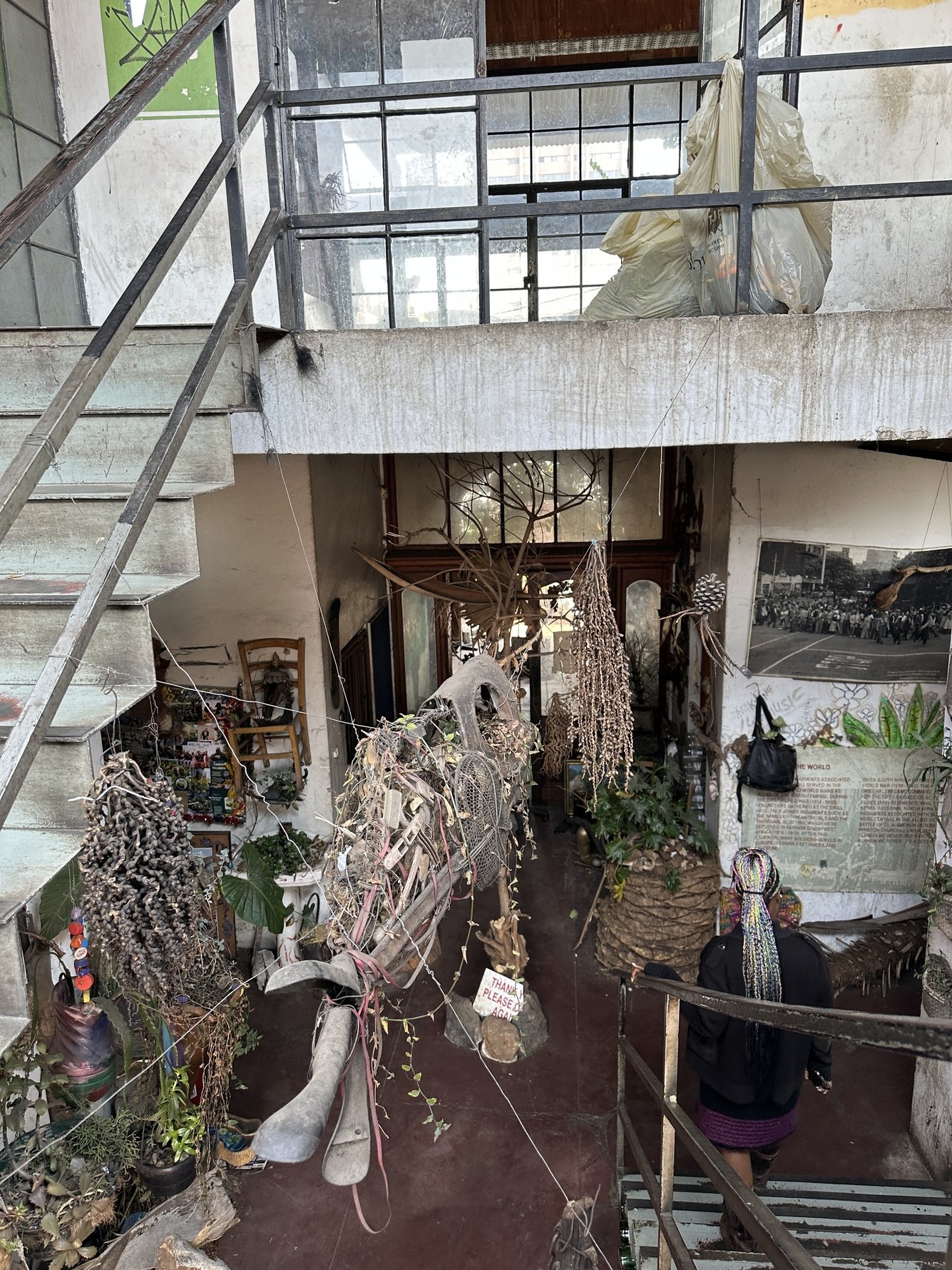
Outside Drill Hall – where Quartz, Plein, De Villiers and Twist Streets wrap into each other – a few men have taken up position on a sunny winter Monday morning and are working in earnest at consuming quarts of Black Label Beer. There’s more than a slight stagger as they rise to greet us, a little too enthusiastically. Out of the door flies Kganyapa, moving with speed to politely fend off the drunken men, and usher us inside. At the entrance, that anxious moment is transformed almost instantly to a state of wonder.
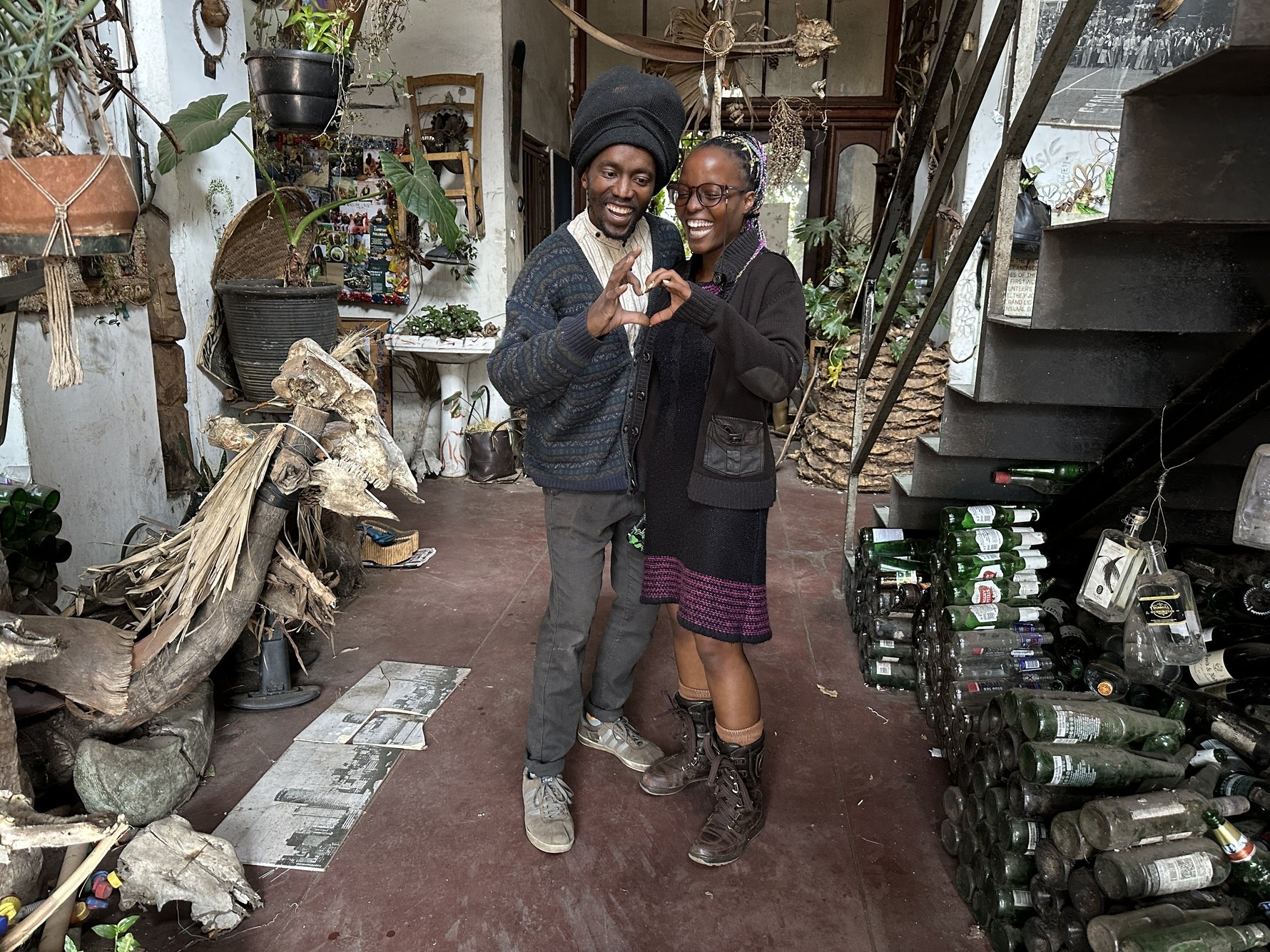
The ground floor of the building is a cavern of delights. Plants festoon the ceiling, grow from objects on the walls. Nature unexpectedly resides here, surrounds you and beckons you in. The place is jammed with stuff, recovered items from the streets, hundreds of glass bottles, mannequin legs planted with saplings (we are told they provide the perfect humidity), newspaper posters hinting at an outside world, giant mushrooms, beaded cow dung, skulls discarded by skop (sellers of sheep and cow head meat) that have been artfully painted.
We meet Ayanda who also welcomes us warmly. Kganyapa and Ayanda are part of Exotically Divine, who might be known to you as the purveyors of delicious vegan food. They once had a restaurant, and they used to trade at one of Joburg’s best markets, the landmark former Market on Main that rose with Maboneng to be a city beacon. They still cook incredible food, harvesting nature’s ingredients, and you can lunch with them, but today they are also the custodians of the historic landmark, The Drill Hall, once a proud heritage building in the city, and now a tumble-down structure whose bare bones hint at its fine architectural intent.
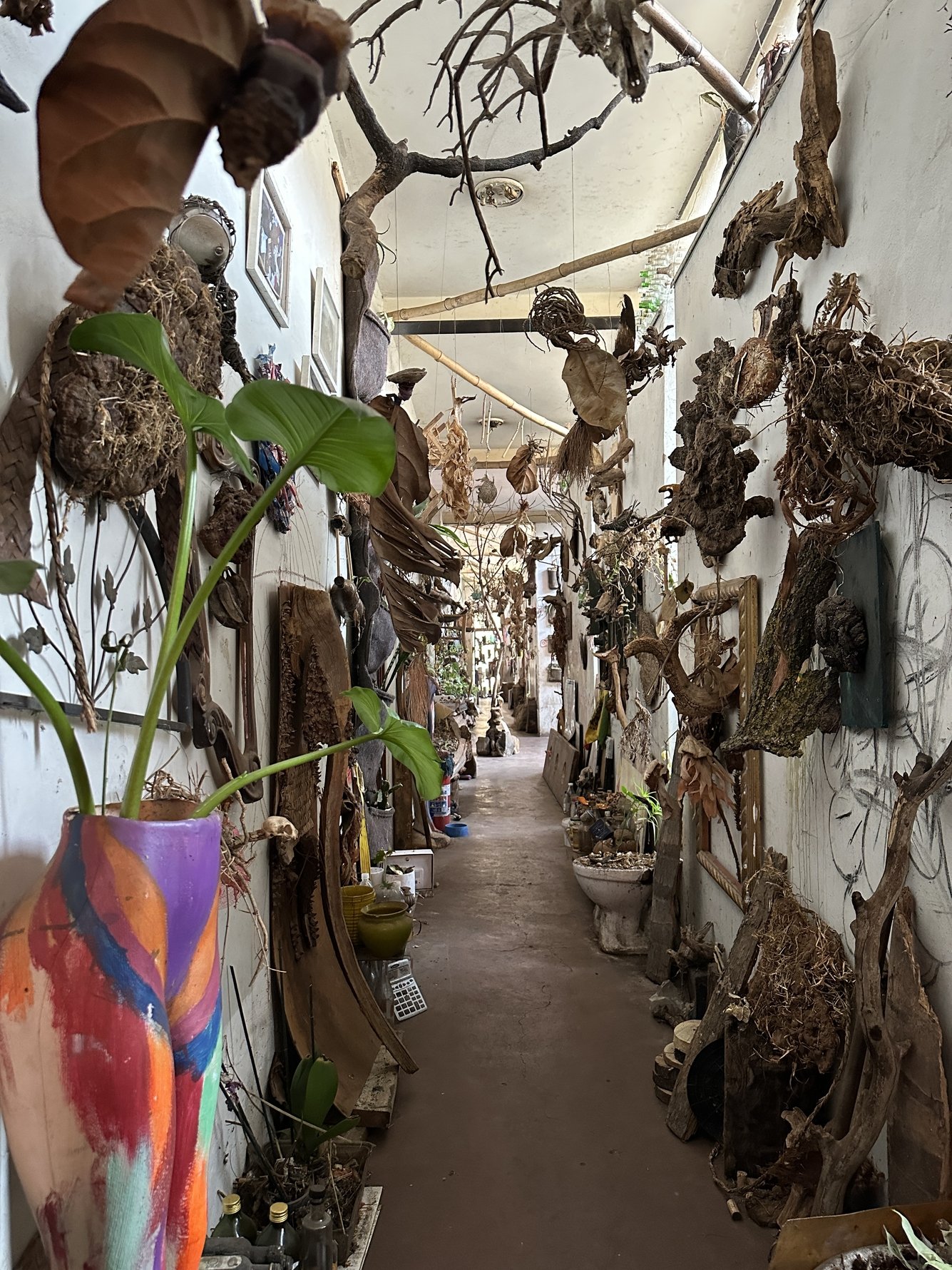
An article on the Heritage Portal written in 2015 details the history of this building, the cornerstone of which was unveiled in 1904. Drill Hall was erected on the site of a former “non-white prison” and built to serve as the HQ of the Transvaal Volunteer Corps. Read more about it here. The preliminary hearing of the 1956 Treason Trial was held here, where 156 people, including Nelson Mandela, were charged. Fast-forward to 2002 and the building was almost consumed by a fire. It then went through a refurbishment that cost R10-million – by the Johannesburg Development Agency, funded by the City of Joburg. It was reported as giving Drill Hall “a new lease on life”. The lease seems to have expired quite quickly.
For a few years the building was home to the Keleketla! Library – a fascinating cultural project and archive that brought unique energy and care to the space, but the library moved to Troyeville in 2015 citing the difficulties of working in a part of the city that had been abandoned by authorities. Read this fascinating article in e-flux Architecture about Keleketla!
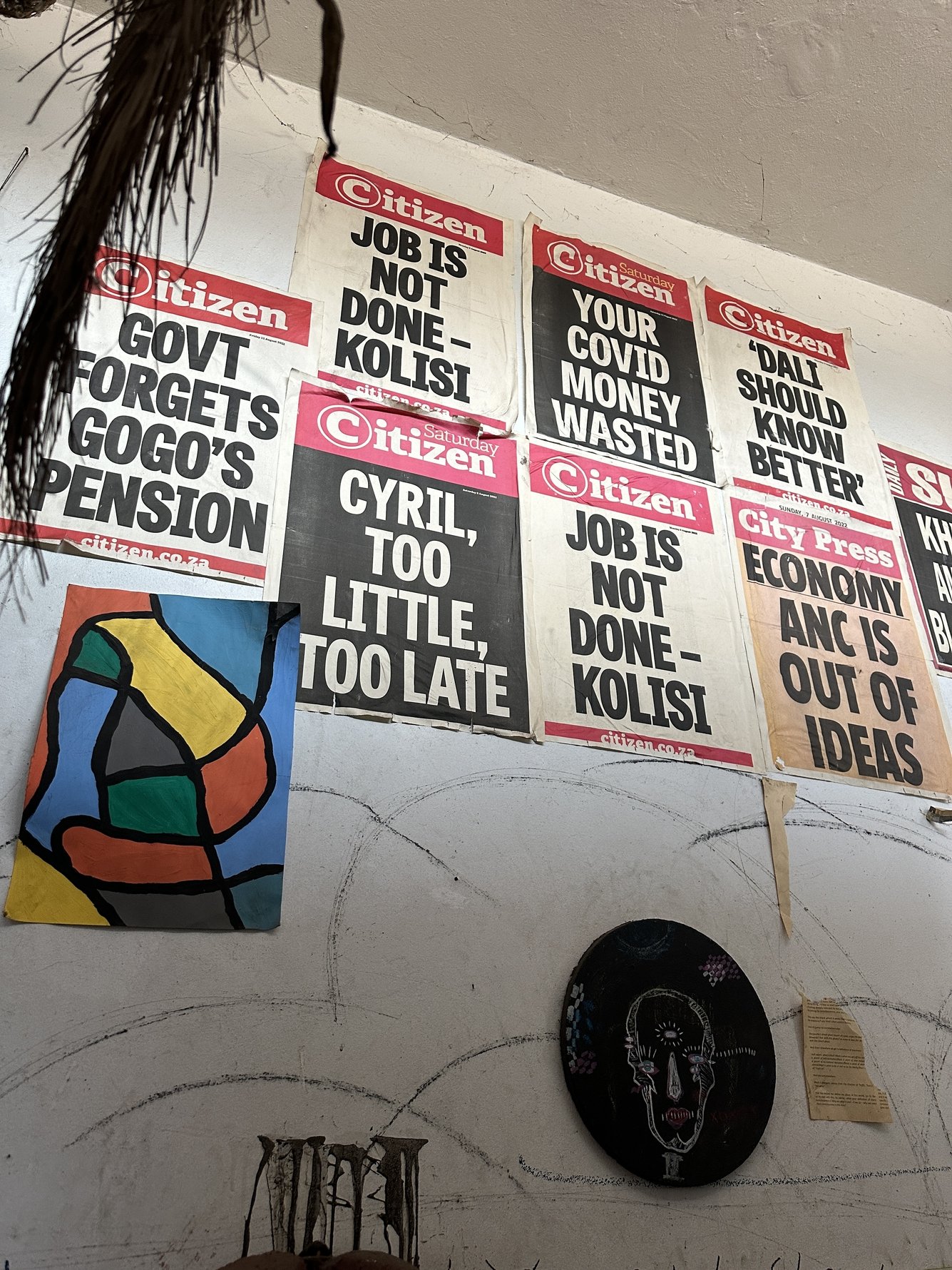
Kganyapa and Ayanda are fixed on waste, on shifting trash into treasure. Inside the now exotically divine Drill Hall, the detritus of the city are being given new life. Hope grows out of every crack in the building in the form of things remade. Seeds become plants, greenery is starting to take over. "We are in the waste age," he says, “and it’s full of opportunity”. Kganyapa is obsessed with the potential to shape lives in the inner city by creating work through waste, using it to make art, and restore dignity. With so many people without work here, he thinks that’s where the answers lie.
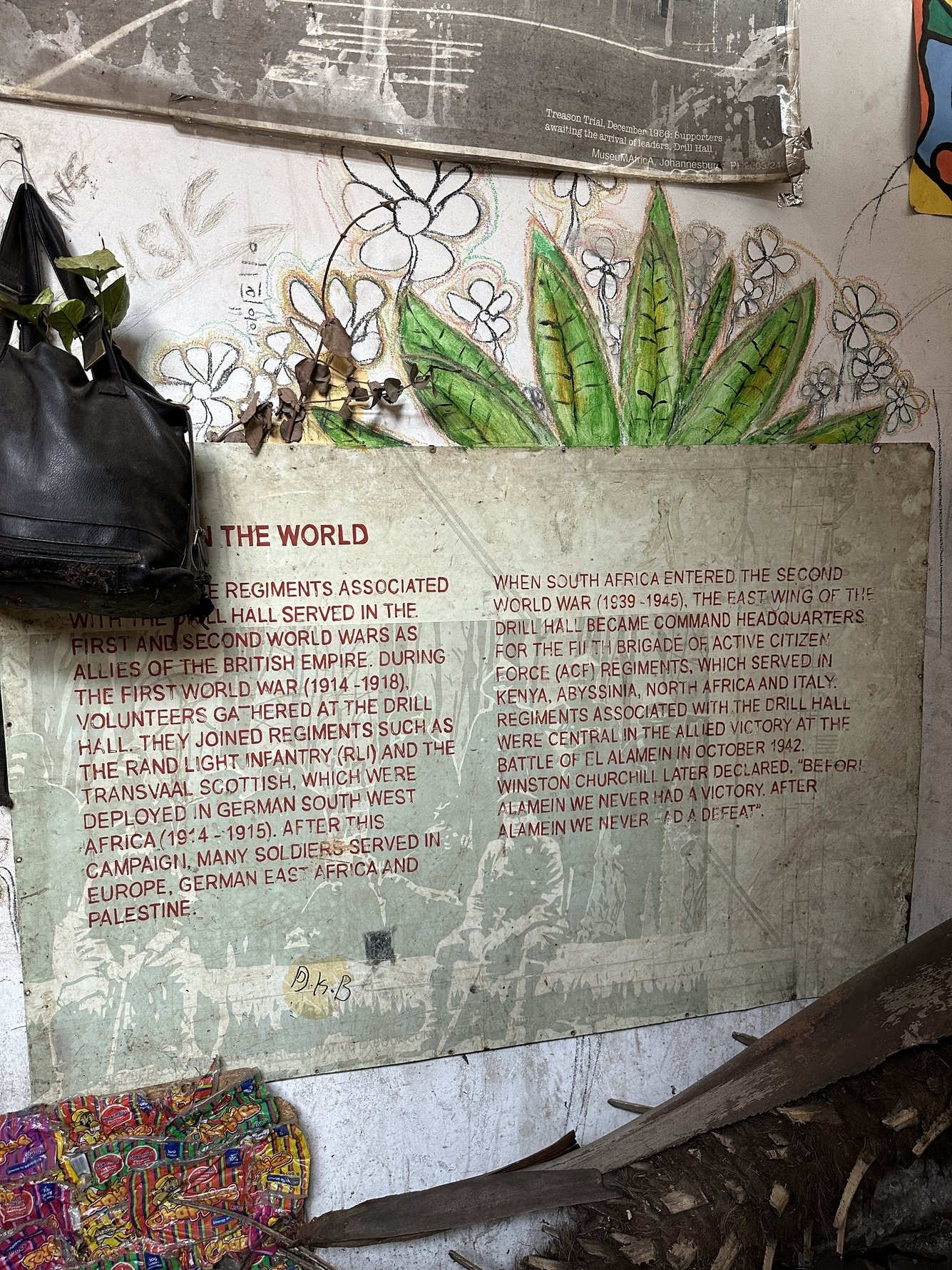
It's a trash bonanza. We see it out of the car window as we drive through the city to this place. A taxi driver tosses a can out of his speeding vehicle in front of us. Pikitup seems to have lost this place on their GPS because there are corners where the rubbish lies in aged heaps. Kganyapa dreams of building a greenhouse on the property, to grow food for the immediate community. He is a natural nurturer. As a start, some of the walls inside the Drill Hall are lined with vertical gardens, the material made from discarded blankets and old carpet squares found in the city. “We have to be hands-on”. Nothing goes to waste here.
He treats the city as his garden. When he speaks, he sounds part mystic and healer, a philosopher who sees the good in a place that few may ever think can be redeemed. We take a walk to a nearby building that was formerly a glorious old cinema. Its ground floor is now a Nigerian food market – and the place to source plantains and other ingredients. Joburg is truly an African city, and when it comes to food, there is not much you won’t find here. With the right companion you can take a short walk in these parts and drink authentic Ethiopian coffee, sample Cameroonian-style whole fish dishes, Congolese cassava, and spicy Jollof rice from Nigeria. Over many years we have travelled in this way.
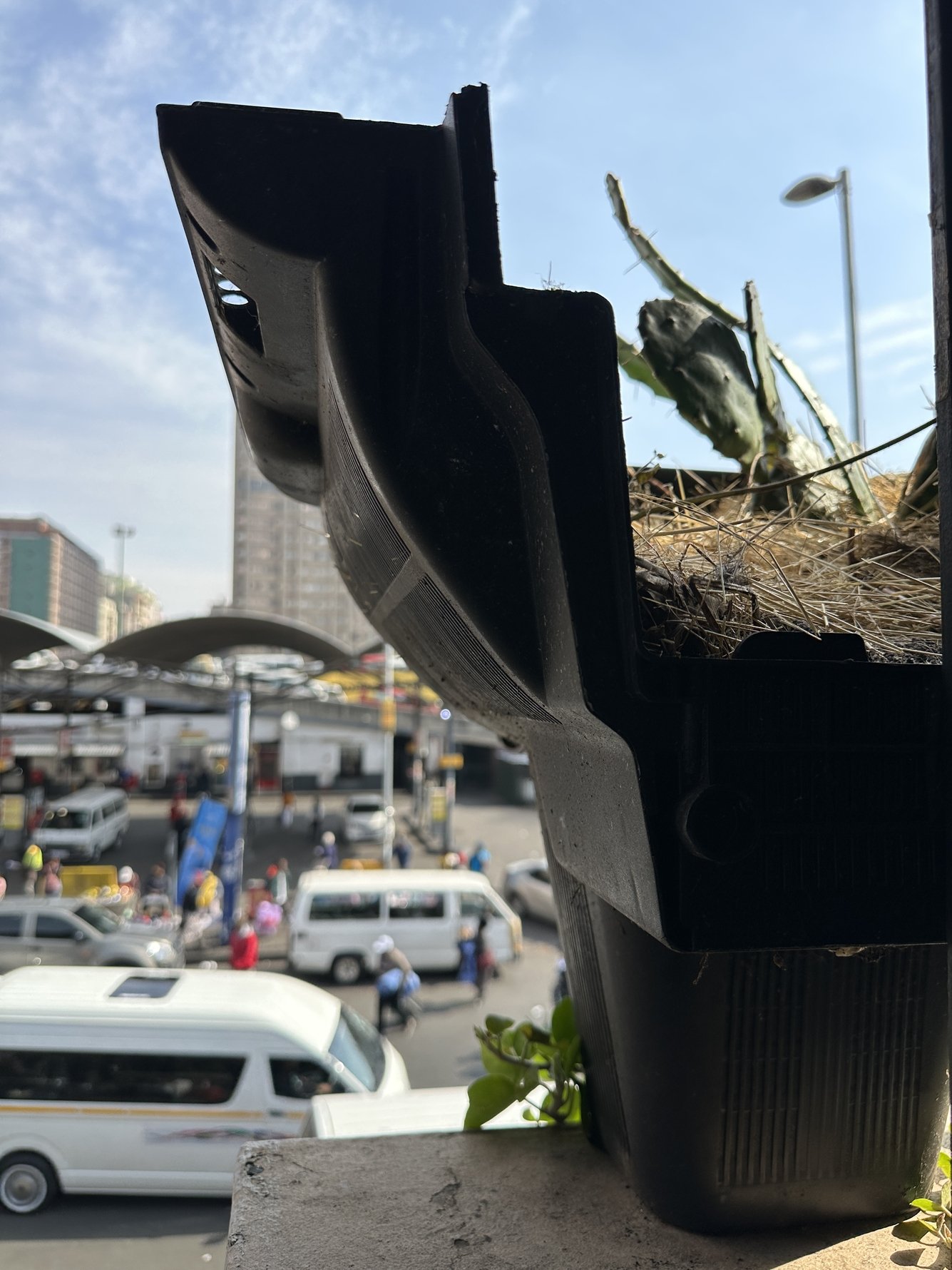
In this small of corner of the city, Kganyapa and Ayanda and the community of which they form part are reimagining a different Joburg – one that is transformed by nature. They believe in its power to heal and bring peace to inner-city lives. Their energy and warmth is seductive, and their efforts to breathe new life into this historic space, to literally grow it, make us cheer them on. This city has been severely let down by the people who were voted in to take care of it, and we firmly believe it will be saved by the efforts of the likes of Kganyapa, Ayanda and friends. This is just one small story in a sea of stories, but it’s an important one – we have to mark it out when we come across people whose efforts make a difference, and it demonstrates the unbeatable spirit of the people of this place.
Published Aug 9, 2023. This story was written without any assistance from an AI chatbot.


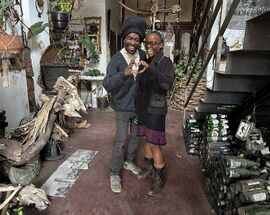
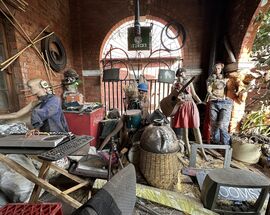
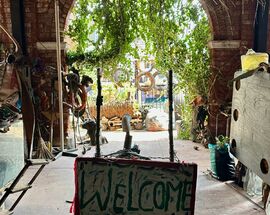


Comments